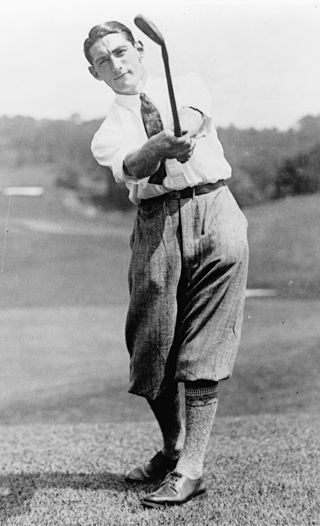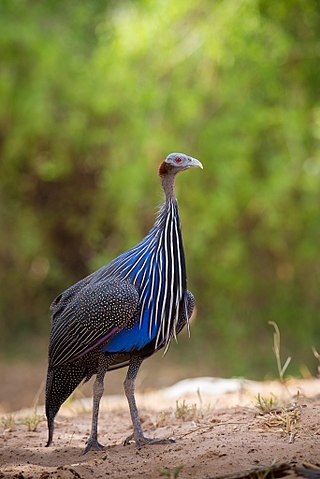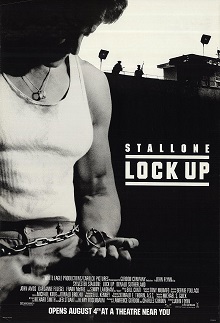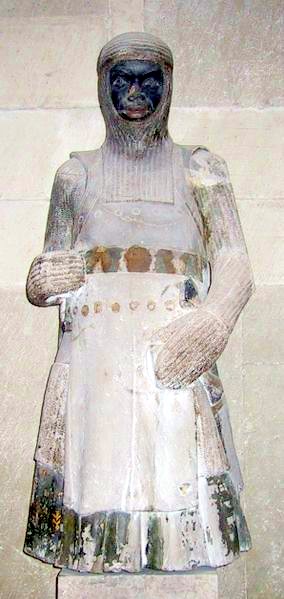
Chain mail is a type of armour consisting of small metal rings linked together in a pattern to form a mesh. It was in common military use between the 3rd century BC and the 16th century AD in Europe, while it continued to be used in Asia, Africa, and the Middle East as late as the 17th century. A coat of this armour is often called a hauberk or sometimes a byrnie.

The Tall T is a 1957 American Western film directed by Budd Boetticher and starring Randolph Scott, Richard Boone, and Maureen O'Sullivan. Adapted by Burt Kennedy from the 1955 short story "The Captives" by Elmore Leonard, the film is about an independent former ranch foreman who is kidnapped along with an heiress, who is being held for ransom by three ruthless outlaws. In 2000, The Tall T was selected for the United States National Film Registry by the Library of Congress as being "culturally, historically, or aesthetically significant."

Brigadier Eric Edward "Chink" Dorman-Smith, who later changed his name to Eric Edward Dorman O'Gowan, was an Irish officer whose career in the British Army began in the First World War and closed at the end of the Second World War. In the 1950s, Dorman-Smith became an officer in the Irish Republican Army (IRA).

Thomas Dickson Armour was a Scottish-American professional golfer. He was nicknamed The Silver Scot. He was the winner of three of golf's major championships: 1927 U.S. Open, 1930 PGA, and 1931 Open Championship. Armour popularized the term yips, the colloquial term for a sudden and unexplained loss of skills in experienced athletes.

Marie Adelaide Elizabeth Rayner Lowndes, who wrote as Marie Belloc Lowndes, was a prolific English novelist, and sister of author Hilaire Belloc.

The vulturine guineafowl is the largest extant species of guineafowl. Systematically, it is only distantly related to other guineafowl genera. Its closest living relative, the white breasted guineafowl, Agelastes meleagrides inhabit primary forests in Central Africa. It is a member of the bird family Numididae, and is the only member of the genus Acryllium. It is a resident breeder in northeast Africa, from southern Ethiopia through Kenya and just into northern Tanzania.
David Michael Barclay Sole is a former Scotland international rugby union player.

The Boys anti-tank rifle was a British anti-tank rifle used during the Second World War. It was often nicknamed the "elephant gun" by its users due to its size and large 0.55 in (14 mm) bore.

Lock Up is a 1989 American prison action film directed by John Flynn, and starring Sylvester Stallone, Donald Sutherland, John Amos and Tom Sizemore. It was released in the United States on August 4, 1989.

Knight Without Armour is a 1937 British historical drama film starring Marlene Dietrich and Robert Donat. It was directed by Jacques Feyder and produced by Alexander Korda from a screenplay by Lajos Bíró adapted by Frances Marion from the 1933 novel by James Hilton. The novel was published in the United States as Without Armour. The music score was by Miklós Rózsa, his first for a motion picture, using additional music by Tchaikovsky.
Jason Tobin, credited in Chinese as To Jun Wai is a Hong Kong-British film and television actor. He is known for his role as Young Jun in the HBO MAX series Warrior.

A coat of plates is a form of segmented torso armour consisting of overlapping metal plates riveted inside a cloth or leather garment. The coat of plates is considered part of the era of transitional armour and was normally worn as part of a full knightly harness. The coat saw its introduction in Europe among the warring elite in the 1180s or 1220s and was well established by the 1250s. It was in very common usage by the 1290s. By the 1350s it was universal among infantry militias as well. After about 1340, the plates covering the chest were combined to form an early breastplate, replacing the coat of plates. After 1370, the breastplate covered the entire torso. Different forms of the coat of plates, known as the brigandine and jack of plates, remained in use until the late 16th century.

Richard de Pearsall Pearson was an English character actor who appeared in numerous film, television and stage productions over a period of 65 years. He played leading roles in several London West End plays and also supported Maggie Smith, Robert Morley and others in long-running West End stage productions. His many screen appearances included character parts in three Roman Polanski films.
Margaret is a 2009 television film produced by Great Meadow Productions for the BBC. It was first broadcast on 26 February 2009 on BBC Two. It was made by the same production company as the 2008 television film The Long Walk to Finchley, which fictionalised the start of Thatcher's political career.

Broken Blossoms is a 1936 British drama film directed by John Brahm and starring Emlyn Williams, Arthur Margetson, Basil Radford and Edith Sharpe. Director Bernard Vorhaus was technical supervisor.
The House of Peril is a 1922 British silent drama film directed by Kenelm Foss and starring Fay Compton, Roy Travers, Flora le Breton and A.B. Imeson. It is an adaptation of the 1912 novel The Chink in the Armour by Marie Belloc Lowndes and the subsequent stage play adaptation by Horace Annesley Vachell. The film follows Sylvia Bailey, a wealthy widow who travels to a French gambling resort where she encounters assorted characters.
Limehouse Nights is a 1916 short story collection by the British writer Thomas Burke. The stories are set in and around the Chinatown that was then centred on Limehouse in the East End of London. The book was a popular success and features several of Burke's best-known stories such as "The Chink and the Child" and "Beryl and the Croucher".
The idiom "chink in one's armor" refers to an area of vulnerability. It has traditionally been used to refer to a weak spot in a figurative suit of armor. The standard meaning is similar to that of Achilles' heel.

Behold My Wife! is a lost 1920 American silent drama film directed by George Melford and starring Mabel Julienne Scott and Milton Sills in a filmization of Sir Gilbert Parker's novel, The Translation of a Savage. Famous Players–Lasky produced the film and Paramount Pictures distributed.
Chink was the nickname of some athletes or military figures, predominantly American in the early 20th century. It is often adjudged to be a reference to someone's appearance. The nickname is an ethnic slur originally referring to a person of Chinese descent. However, not all uses of the nickname were derived in that manner: basketball player Chink Crossin received the nickname as an onomatopoeia for the sound that chain basketball nets make when a shot goes through, and British Army officer Eric Dorman-Smith was given the nickname due to his resemblance to a Chinkara antelope. Notable persons with the nickname include:













